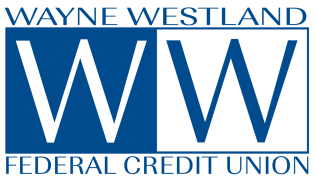From picking neighborhoods and school districts, to dealing with down payments and home inspections, there are a lot of choices homebuyers need to make. A major decision, one that will affect your finances for years, is what kind of mortgage to get: fixed or adjustable rate.
The most popular type of mortgage is fixed-rate, which means it has the same interest rate for the life of the loan. That means your monthly payment (principal and interest) remains the same. An adjustable rate mortgage (ARM) comes with an interest rate that changes over time. It’s initially set below the market rate and then increases throughout the life of the loan. Each type of mortgage has its own pros and cons.
Fixed-Rate Mortgage – Pros and Cons
Pros
- Borrowers are protected from sudden and major monthly payment increases if rates go up
- You’re locked into your rate for the entire term of the loan (unless you refinance, that is)
- It’s simpler to create and stick to a monthly budget if you know what your monthly payment will be
Cons
- Your monthly payment will initially be higher than that of an ARM
- If interest rates are high, it could be harder to qualify for a loan
- It could possibly cost you more in interest over the life of the mortgage
Adjustable-Rate Mortgage – Pros and Cons
Pros
- The interest rate and monthly payment are initially lower than those of a fixed-rate mortgage
- Lower rates mean that you could potentially qualify for a larger loan
- You could end up saving hundreds of dollars per month for the first several years of the mortgage
Cons
- Your monthly payment may change often during the loan term
- Monthly payments may end up being more than you can afford once they increase
- ARMs are harder to understand compared to the more straightforward fixed-rate loan
Here’s a breakdown of the various mortgages, highlighting what they coast in the long run:
| Fixed Rate Mortgage | Fully Amortizing ARM | Interest-Only ARM | |
| Loan Amount | $200,000 | $200,000 | $200,000 |
| Term | 30 years | 30 years | 30 years |
| Interest Rate | 4.5% APR | 4% APR* | 4% APR* |
| Initial Monthly Payment | $1,013.37 | $954.83 | $666.67 |
| Payment After 4 Years | $1,013.37 | $1,038.67 | $791.67 |
| Total Interest Paid | $164,813.83 | $261,906.43 | $457,500.00 |
| Total Payments | $364,813.83 | $461,906.43 | $457,500.00 |
| Ending Balance | $0.00 | $0.00 | $200,000.00 |
*Rate is fixed for 12 months, then adjusts by 0.25% every 12 months to a maximum of 12%. The highest rate charged was 11.25%.
How to Decide?
There are a few factors to consider before deciding which type of mortgage is right for you. When choosing, ask yourself these questions:
How much can you afford?
Once you’re prequalified for a mortgage, look at your monthly budget and determine what you can actually afford. Your bottom line may influence which mortgage you pick. You’ll also need to figure out what you can afford if your ARM rate increases. Start with the worst-case scenario and work your way back from there.
How long do you plan on living in the home?
If you think you’re only going to be in the house for a few years, an ARM can help you save. If you plan on raising kids and growing old in your home, you should probably consider getting a fixed-rate loan.
What are the terms of the ARM?
ARMs come in all shapes and sizes, i.e. interest-only, fully amortizing, adjustment terms from one month to 10 years, etc. Know what you need and what your financial institution/credit union has to offer.
What are the interest rates and where are they going?
If rates are currently high, an ARM makes total sense. Their lower initial rates will help you save in the beginning. If rates are low, a fixed-rate mortgage might make the most sense.
After you’ve crunched some numbers, it’s always good to discuss your options with both an accountant and your mortgage lender to choose the mortgage that’s right for you.
WWFCU teams up with Mortgage Center to give its members the best, most affordable options. Click here to apply for a mortgage or call 888-562-6865 to explore your options today.


